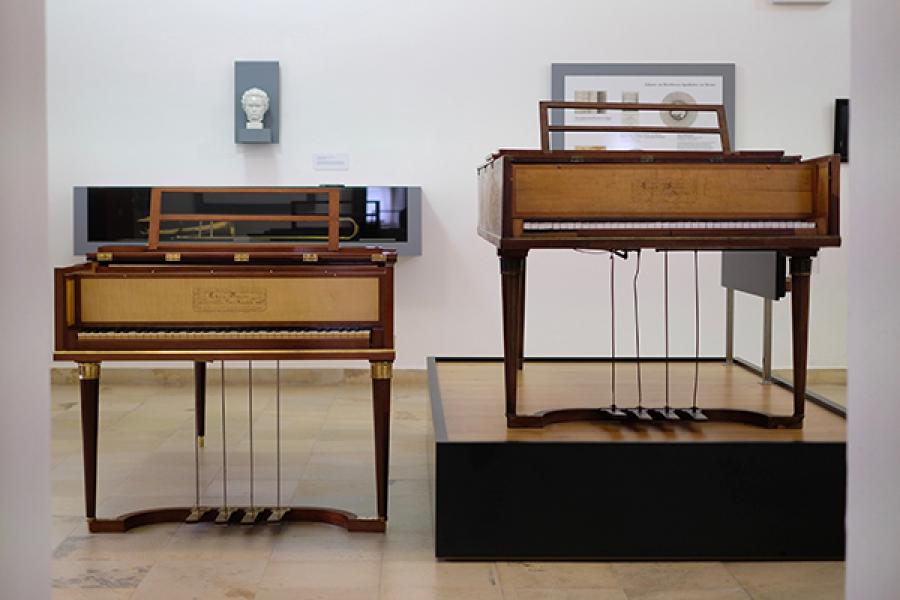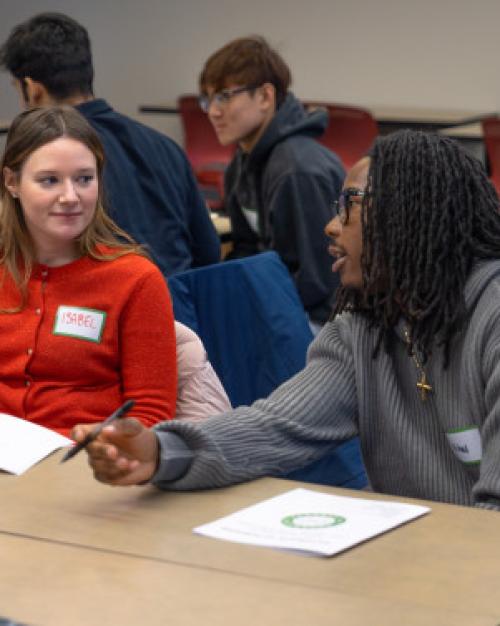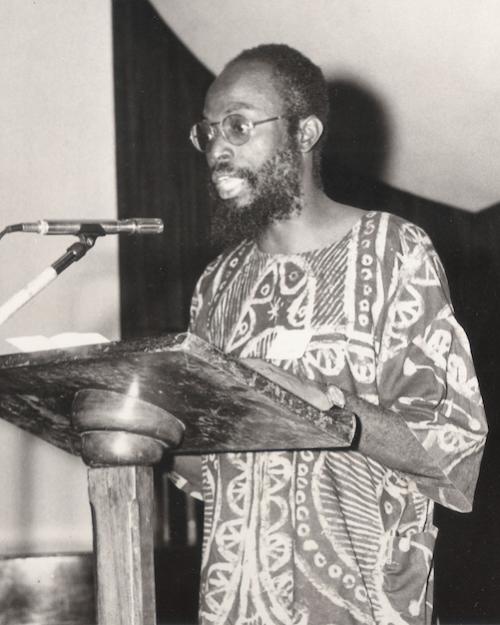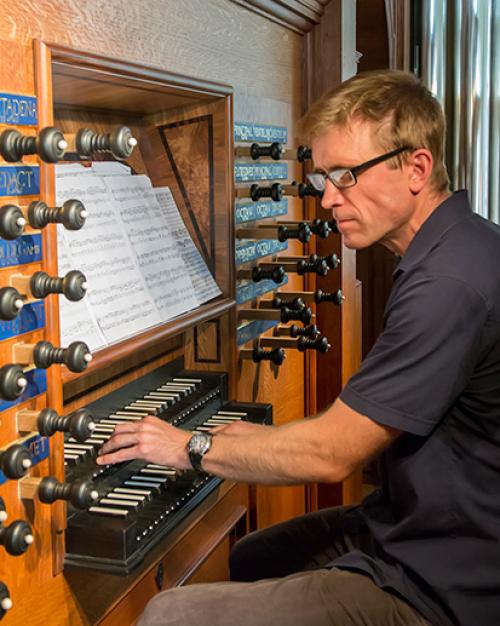The Cornell Center for Historical Keyboards (CCHK) presents a full program of virtual events for the fall 2020 semester, comprised of two distinct series: "Music as Refuge," beginning Sept. 23; and "Beethoven and Pianos: Off the Beaten Path," beginning Oct. 2.
Event dates and times will be announced as they become available at historicalkeyboards.org.
Music as Refuge
Starting with an online concert on Sept. 23 at 12:30 p.m., department faculty and students will present regularly scheduled programs that reflect on music as a medium for refuge in turbulent times.
Highlighting this series are two programs by pianists Xak Bjerken and Mike Lee.
Xak Bjerken, professor of music, will present a premiere of “Orpheus Suite” by Elizabeth Ogonek, assistant professor of composition, along with an interview with the composer.
Mike Lee, CCHK artist-in-residence and visiting scholar, will perform a selection of Chopin’s Preludes, Op. 28, on Cornell’s Pleyel pianino, reflecting on Chopin’s isolated and alienated circumstances and their possible musical manifestation in a surviving autograph sketch during his sojourn on the island of Majorca (1838-39).
As part of the "Music as Refuge" series, the biweekly Midday Music for Organ programs range across a wide terrain, from early 18th-century Northern Germany to 20th-century England, from 19th-century America to the European lowlands of the 17th century, in an exploration of "The Organist's Imaginary Worlds."
David Yearsley, professor of music, will present “Fantastical Refuges” with music by G. F. Handel; graduate student Anna Steppler “Remembers Home” with British music of the 20th and 21st centuries; Annette Richards, the Given Foundation Professor in the Humanities and University Organist, is “Suspended in Time” with music by Alain, Buxtehude, Mozart, and Arvo Pärt; and graduate student Michael Plagerman takes us to the “Fortress: Music of Strength and Comfort,” featuring Liszt, Widor, and John Knowles Paine. The organ recitals will be recorded on a variety of instruments at Cornell and in the Ithaca area.
Beethoven and Pianos: Off the Beaten Path
Beginning with an online concert on Oct. 2, the center’s faculty, students, and alumni will present a series of online events exploring Beethovenian keyboard culture in new historical and contemporary contexts on the occasion of the composer’s 250th anniversary.
The series "Beethoven and Pianos: Off the Beaten Path" traces two tracks: one exploring lesser-known pianos associated with Beethoven (and represented in Cornell’s collection), the other considering contemporary responses to this monumental historical figure and his music.
The series will cast light on the ideas and practices that informed the keyboard culture of Beethoven’s day, but also to go beyond them, in terms of time and place, politics and aesthetics, performance and ideology – reaching well into the 20th and even 21st centuries.
It begins with a trio of conversations which present three of the leading figures in today’s Beethovenian landscape. Richards talks with musicologist Nicholas Mathew (associate professor of music at University of California, Berkeley and author of Political Beethoven, 2013). Bjerken, alongside Richards and Rick Faria, talk with music critic and novelist Paul Griffiths about his recently published work of historical fiction, Mr. Beethoven. And Lee interviews Malcolm Bilson who, together with six Cornell DMA graduates, first presented Beethoven’s 32 sonatas on historical instruments in the mid-1990s.
The events that follow will explore some of the less-well-known pianos that shaped Beethoven’s aural and kinetic memory and that are the focus of cutting-edge research today.
Tom Beghin DMA ’96 will give the premiere of his project involving the first modern reconstruction of Beethoven’s 1803 Erard.
This is followed by three contributions from Lee in collaboration with DMA student Cheryl Tan: a reexamination of the role of the Stein piano in Beethoven’s early years (with guest Tilman Skowroneck); a reassessment of the hybrid nature of the Diabelli Variations (two pianos, two phases of composition); and a revisiting of the connection between Beethoven’s late keyboard style and the music of C.P.E. Bach.
Former and current graduate students will present new works that celebrate, reflect upon, and critique Beethoven and his music’s legacy.
Two programs curated by current DMA students Richard Valitutto and Thomas Feng will be centered around Michael Finnissy, pairing his music with works by Mark Carlson, Reiko Füting, Juri Seo, and others. The series culminates with piano duo HearNowHear (Andrew Zhou, DMA ‘19, and Ryan MacEvoy McCullough) presenting a new work commissioned specially for this series from an international roster of young composers (Aida Shirazi, Yi Wei (Angus) Lee, LJ White, Dante De Silva, and Jihyun Kim), and consisting of a set of variations on the first sixty-four measures of Beethoven’s “The Rage Over a Lost Penny,” Op. 129. The work will be a 21st-century parallel to Anton Diabelli’s Vaterländischer Künstlerverein project but will aim to move beyond Beethoven as sublime hero and focus instead on the frothy, disposable, and “bad” Beethoven.
Beethoven and Pianos is co-sponsored by the Society for the Humanities, the Central New York Humanities Corridor from an award by the Andrew W. Mellon Foundation, and the Cornell Department of Music.





